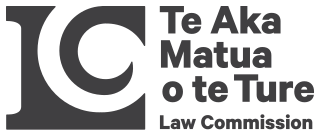Sovereign immunity, or crown immunity, is a legal doctrine whereby a sovereign or state cannot commit a legal wrong and is immune from civil suit or criminal prosecution, strictly speaking in modern texts in its own courts. State immunity is a similar, stronger doctrine, that applies to foreign courts.
A dependent territory, dependent area, or dependency is a territory that does not possess full political independence or sovereignty as a sovereign state and remains politically outside the controlling state's integral area. As such, a dependent territory includes a range of non-integrated not fully to non-independent territory types, from associated states to non-self-governing territories.

Duke of Rothesay is the main dynastic title traditionally given to the male heir apparent to the Scottish and, later, British thrones. The dukedom was created in 1398 by Robert III of Scotland for his eldest son.
A Crown entity is an organisation that forms part of New Zealand's state sector established under the Crown Entities Act 2004, a unique umbrella governance and accountability statute. The Crown Entities Act is based on the corporate model where the governance of the organisation is split from the management of the organisation.

The Crown broadly represents the state in all its aspects within the jurisprudence of the Commonwealth realms and their subdivisions. The term can be used to refer to the office of the monarch or the monarchy as institutions; to the rule of law; or to the functions of executive, legislative, and judicial governance and the civil service.
In New Zealand, Crown Research Institutes (CRIs) are corporatised Crown entities charged with conducting scientific research.
A land patent is a form of letters patent assigning official ownership of a particular tract of land that has gone through various legally-prescribed processes like surveying and documentation, followed by the letter's signing, sealing, and publishing in public records, made by a sovereign entity. While land patents are still issued by governments to indicate property is privately held, they are also often used by sovereign citizens and similar groups in illegitimate attempts to gain unlawful possession of property, or avoid taxes and foreclosure.
The Electoral Commission is an independent Crown entity set up by the New Zealand Parliament. It is responsible for the administration of parliamentary elections and referendums, promoting compliance with electoral laws, servicing the work of the Representation Commission, and the provision of advice, reports and public education on electoral matters. The commission also assists electoral agencies of other countries on a reciprocal basis with their electoral events.

Te Urewera is an area of mostly forested, sparsely populated rugged hill country in the North Island of New Zealand, located inland between the Bay of Plenty and Hawke Bay. Te Urewera is the rohe of Tūhoe, a Māori iwi (tribe) known for its stance on Māori sovereignty.
The Arts Council of New Zealand Toi Aotearoa (Creative New Zealand) is the national arts development agency of the New Zealand government established in 1963. It invests in artists and arts organisations, offering capability building programmes and developing markets and audiences for New Zealand arts domestically and internationally.
Australian Transaction Reports and Analysis Centre (AUSTRAC) is an Australian government financial intelligence agency responsible for monitoring financial transactions to identify money laundering, organised crime, tax evasion, welfare fraud and terrorism financing. AUSTRAC was established in 1989 under the Financial Transaction Reports Act 1988. It implements in Australia the recommendations of the Financial Action Task Force on Money Laundering (FATF), which Australia joined in 1990.

Heritage New Zealand Pouhere Taonga is a Crown entity with a membership of around 20,000 people that advocates for the protection of ancestral sites and heritage buildings in New Zealand. It was set up through the Historic Places Act 1954 with a mission to "...promote the identification, protection, preservation and conservation of the historical and cultural heritage of New Zealand" and is an autonomous Crown entity. Its current enabling legislation is the Heritage New Zealand Pouhere Taonga Act 2014.

The Public Service Commission, called the State Services Commission until 2020, is the central public service department of New Zealand charged with overseeing, managing, and improving the performance of the state sector of New Zealand and its organisations.
A statutory corporation is a government entity created as a statutory body by statute. Their precise nature varies by jurisdiction, but they are corporations owned by a government or controlled by national or sub-national government to the extent provided for in the creating legislation.

Sport New Zealand is a New Zealand Crown entity responsible for governing sport and recreation in New Zealand.
Energy Efficiency and Conservation Authority (EECA) is a New Zealand government/Crown agency responsible for promoting energy efficiency and conservation.
Crown copyright is a type of copyright protection. It subsists in works of the governments of some Commonwealth realms and provides special copyright rules for the Crown, i.e. government departments and (generally) state entities. Each Commonwealth realm has its own Crown copyright regulations. There are therefore no common regulations that apply to all or a number of those countries. There are some considerations being made in Canada, UK, Australia and New Zealand regarding the "reuse of Crown-copyrighted material, through new licences".

New Zealand's Law Commission was established in 1986 by the Law Commission Act 1985. The commission is an independent Crown entity as defined in the Crown Entities Act 2004.
Ngāti Apa ki te Rā Tō is a Māori iwi (tribe) in the upper South Island of New Zealand. Its rohe include the areas around Golden Bay, Tākaka, Tasman Bay / Te Tai-o-Aorere, Motueka, Nelson and Saint Arnaud, including Taitapu and Kawatiri River catchments and Lakes Rotoiti, Rotoroa, and the Tophouse.







